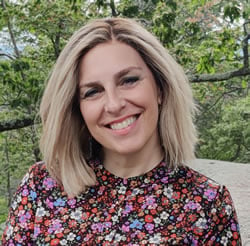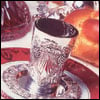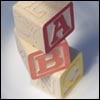Passover is a time to experience liberation from those who tried to prevent us from reaching our potentials and living fully as Jews. It is also a time to retell our liberation from other persecutions throughout our long exile.
Kiev, 1941
"Batsheva, wake up!" Pinchas gently woke his daughter. "We cannot postpone it any longer. Today, you must start school," Pinchas said with a heavy sigh.
Batsheva nodded solemnly. Her parents had deferred the start of her official education for an entire year. But now the inevitable was to happen.
Though just a young child, Batsheva was mature. She was well aware that in the Soviet Union government-run schools were breeding grounds for indoctrinating its unsuspecting students in the communist philosophy. Many children succumbed to the brainwashing, some even turning against their own parents, in the name of "Mother Russia."
Remaining a religious Jew in a climate of such open hostility would be extremely difficult for young Batsheva.
In the Soviet Union, government-run schools were breeding grounds for indoctrinating its unsuspecting students in the communist philosophy.Batsheva dressed quickly and prepared herself for school.
"But, Father," Batsheva timidly broached the topic at the breakfast table, "what will we do about Shabbat?"
In the Communist schools, classes were conducted on a seven day, rotational cycle, with the seventh day from any national holiday being a rest day. Some days, school would be closed on Shabbat, but on other weeks, the off-day might occur on any other day of the week.
It was illegal to observe Shabbat or mitzvot and suspicion would be aroused if Batsheva avoided school every Shabbat.
"G‑d will help," was her father's confident reply.
"But it is still many days away," her mother, Batya, soothed her. "Let's not worry now."
The following Shabbat, Pinchas cheerfully awoke his daughter. "Come, Batsheva, it is time."
"Today is Shabbat!" Batsheva was frantic.
"Shh! I've worked it out," Pinchas responded gently, urging her to keep quiet so no prying neighbors would overhear. "Come along."
Together, Pinchas and his young daughter walked several blocks, arriving at the physiotherapist's office.
Sveta was not Jewish but was an intelligent and obliging professional. Pinchas indicated the slight bend in his daughter's shoulder and Sveta began therapeutic massages and minor exercises. At the conclusion of the visit, Sveta duly recorded that she had seen Batsheva who would need ongoing treatment for her shoulder. Batsheva was consequently excused from school that day.
Pinchas and Batsheva headed home to begin their Shabbat meal, joyous that for the time being, they had preserved the sanctity of the day.
As Batsheva resumed her visits with the physiotherapist, Sveta became instrumental in Batsheva's release from school, and visits were purposefully conducted on the holy day of Shabbat.
Pinchas regularly found ways to clandestinely present Sveta with expensive gifts or monetary contributions so that these visits would continue at his convenience. This was their surreptitious, unspoken agreement.
On another occasion, Batsheva did attend school on Shabbat. But on two fingers of her right hand was a large bandage, making it impossible for her to write—and do any work that would be in violation of the laws of Shabbat. For a generous gift, a doctor provided a note verifying that Batsheva's finger was injured and could not be used.
For a generous gift, a doctor provided a note verifying that Batsheva's finger was injured and could not be used.
One time, when Pinchas and Batya began to fear that Sveta's appointments were becoming too frequent, and her bandaged fingers too suspicious, they tried a different scheme.
"Get dressed in your school clothing today," Batya instructed her daughter that Shabbat morning.
Batsheva guardedly observed her mother, but knew better than to question.
Pinchas and Batsheva headed purposefully in the direction of her school. But along the way, they made a sharp turn at the neighborhood park. They arrived a few moments before nine o'clock, the hour that classes commenced, and remained, talking and playing quietly until three in the afternoon, when classes concluded. Then, hand in hand, they walked home as if Pinchas had just arrived to fetch his daughter from a full day of studies.
To the snooping eyes of meddling neighbors or officials, Batsheva had attended school on Shabbat. Gratuitous gifts to Batsheva's teachers assured that her absences would be overlooked.
And indeed, Batsheva learned an essential lesson on each of those special Shabbats, a lesson that would be indelibly engraved in her heart—about the sanctity of the Torah and its mitzvot and about how the Jewish people would ultimately vanquish their oppressors.
The following year, the Second World War broke out, bringing with it its own challenges for Soviet Jewry. But one relief from the war was that formal schooling would no longer be compulsory for Batsheva. For the remainder of the war, as she was tutored by private teachers at home, the Sudaks would no longer need to seek creative means to avoid Batsheva's desecration of the holy Shabbat.
Today, Batsheva, my mother, is a Rebbetzin in Toronto, encouraging others to discover the joy of Shabbat, holidays and a Torah lifestyle—without the feat or anxiety that accompanied her so many years ago.







